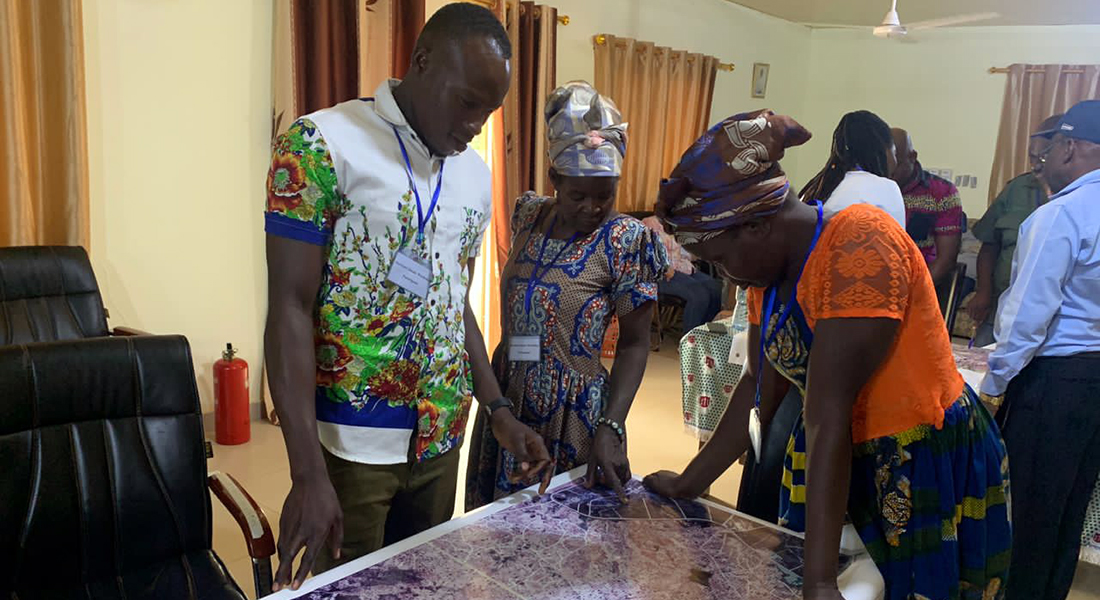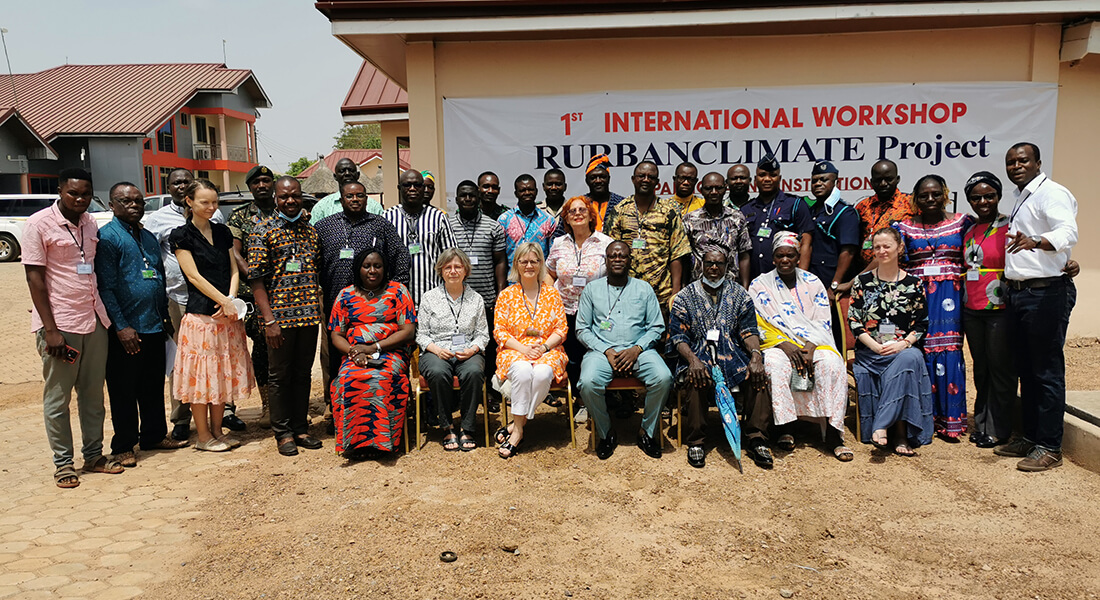The project focuses on the southern limit of the Sudano-Sahelian bio-climatic zone of West Africa and specifically on the southern part of Burkina Faso and Northern Ghana.
Climate Resilience Across the Rural-Urban Continuum (RURBANCLIMATE)

The interdisciplinary research project RurbanClimate seeks to develop a comprehensive understanding of the interplay between climate change, small town development and local governance that can support exploring pathways to sustainable adaptation to impacts of climate change on local ecosystems and livelihoods.
Rural-urban migration and the emergence of small towns are shaped by both climate and environmental change and socio-economic transformations. Being preoccupied with climate resilience across the rural-urban continuum, the project is innovative in taking its point of departure in fast-growing small towns and in exploring them as important sites for understanding climate change governance

WP1: Climate change resilience of small towns
Work package 1 runs in parallel with the other WPs, and consolidates all findings into a coherent, evidence-based response to the overall objective and hypothesis.
This WP coordinates research in WP 2, 3 and 4 and works closely with the scientific advisory board to ensure research quality and the timely and targeted dissemination of findings. Likewise, it secures learning and collaboration across all WPs by organising an initial ‘setting the scene’ phase and regular ‘learning loops’.
WP2: Data integration
Work package 2 corresponds to objective 1: assess the accessibility and relevance to local stakeholders of demographic and socioeconomic data and improve them through the integration of secondary data at the regional and sub-regional scales.
This WP integrates biophysical and socio-economic data across scales to provide a comprehensive overview of the interactions between climatic and environmental changes, population growth, mobility and distribution, and urbanization. It explores how available data at different scales (global, regional, national, local/watershed) can be combined to provide a detailed understanding of how these different processes converge and interact at the local level.
WP3: Ecosystems-urbanization-livelihood nexus
Work package 3 corresponds to objective 2: document the ecosystems-urbanisation-livelihoods nexus by exploring the impacts of the livelihood strategies of different groups in small emerging towns on environmental resource use and availability.
This WP explores the socioeconomic, spatial and environmental dimensions of small-town growth, and examines how the transformation of the local economic base from agriculture to services and industry is reflected in the livelihoods of different groups. Special attention is given to the identification of pathways that result in either sustainable adaptation to environmental pressure or increased vulnerability of ecosystems.
WP4: Local governance for sustainable adaptation
Work package 4 corresponds to objective 3: examine the factors that may sustain or hinder the role of local governance systems in supporting sustainable adaptation to climate change.
This WP discusses these factors in policy dialogues to share learning and develop alliances among a wide range of stakeholders, including local and regional government, civil society and the private sector.
Funded by
Research grant from the Ministry of Foreign Affairs
Projekt: Climate Resilience Across the Rural-Urban Continuum(DFC grant number: 20-11-KU)
Funding period: 2021-2025
Contact
Professor Jytte Agergaard
Department of Geosciences and
Natural Resource Management
E-mail: ja@ign.ku.dk


